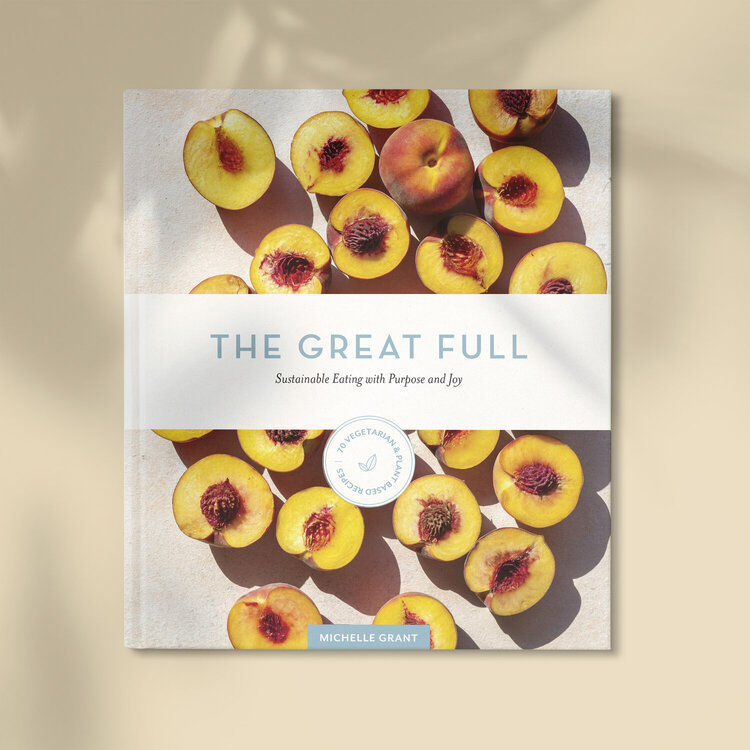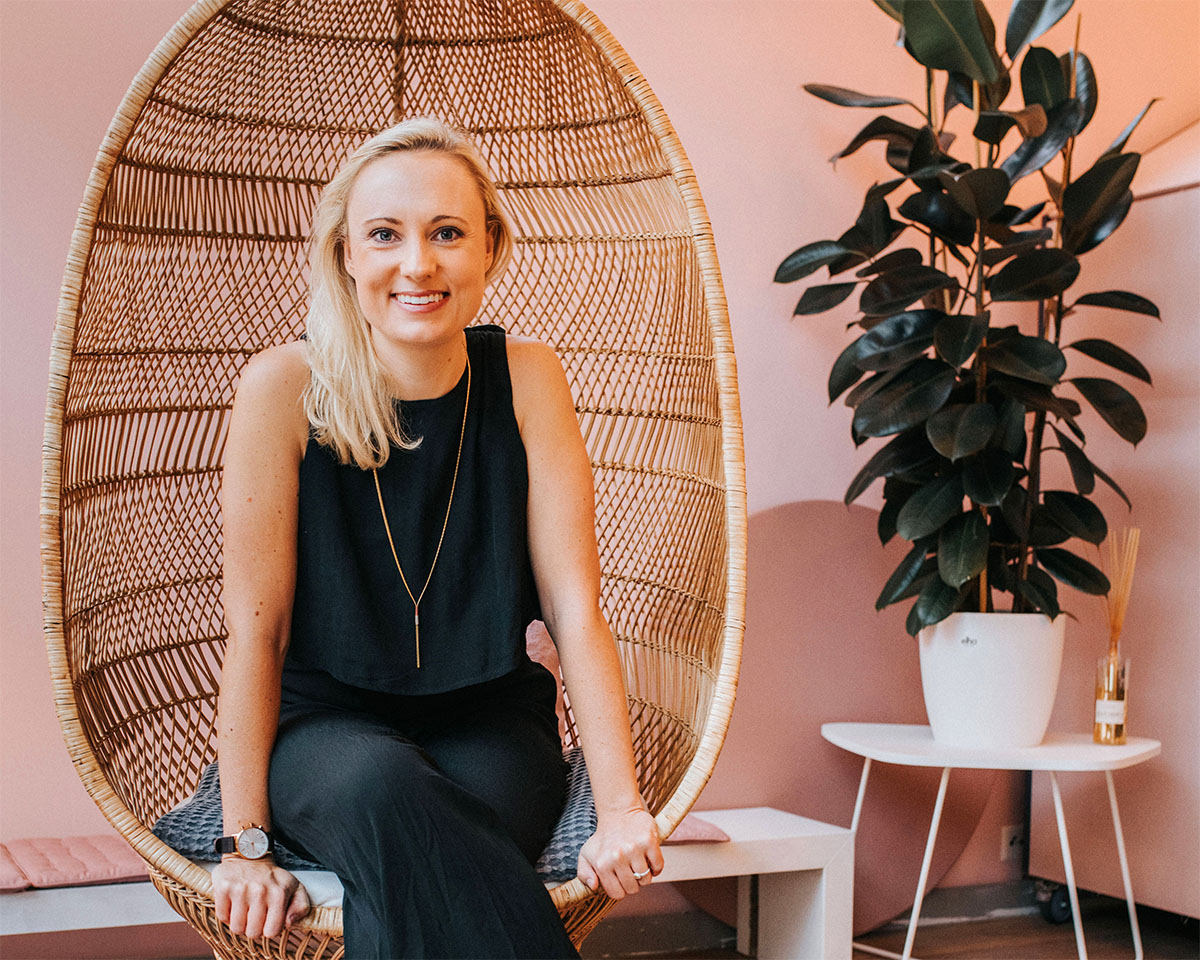In the not-so-distant past, changing your lifestyle habits in the name of environmental protection and sustainability was extremely alternative and might have earned you a badge of “greenie”, “hippie” or “eco-warrior”.
Fast-forward to 2020 and the game has changed.
In light of all the alarming climate change and environmental damage as the human population continues to expand, adopting habits that have Mother Nature in mind is just common sense.
To drive less, go plastic-free, pay more attention to where your clothes are made, or start a compost system are not just accepted choices, they are encouraged and applauded. It’s almost a sin to drink from a plastic straw or arrive at the supermarket without carrying your reusable tote bag.
One area of life that is intricately woven into our daily existence, wellbeing and the health of the planet – but hasn’t been central in the sustainability discussion until fairly recently – is what we choose to put on our plates.
As a food systems specialist and educator for 15 years, Australian-born Michelle Grant is at the forefront of this conversation and was recently named the winner of the Advance Food and Agriculture Award at the prestigious 2019 Advance Awards, which recognises the outstanding achievements of Australians living and working around the world.
Backed by a hefty list of credentials in chemical and environmental engineering, management, technology and economics, Michelle was the founding executive director of the World Food System Centre at the Swiss Federal Institute of Technology.

The Great Full by Michelle Grant is about sustainable eating and includes 70 vegetarian and plant-based recipes. Available from thegreatfull.com
(Image: Supplied)She has designed and delivered international graduate level education programmes around food systems and sustainability, secured millions of dollars’ worth of funding and supported more than 30 research projects, and worked on solutions to global issues.
Although she handed over the position in 2018, she continues as education director, recently launched her own online platform, and has now written her first book, The Great Full: Sustainable Eating with Purpose and Joy.
Having read her fair share of unengaging (or extremely depressing) reports, Michelle knew she wanted to provide something for the everyday person that tackled issues of food and sustainability with a sense of joy and purpose, rather than doom.
“Food is such an emotional, cultural topic and I really wanted to create something that would help people navigate this space. It doesn’t have to be so overwhelming,” she says.
A compilation of powerful insights, encouraging lifestyle tips and lots of recipes, she hopes it will empower people to eat, live and lead in a way that fosters greater wellbeing for individuals and wider communities.
Where humans used to grow their own food in tight-knit village communities and be intimately involved with the process from farm to table, it’s now easy to wolf down a plate of food without giving a second thought to the people and processes behind each morsel.
But just because you can’t easily see the impact of your food choices and how they connect you to people and places all over the globe, it doesn’t mean those connections don’t exist.
Our current mode of industrial food production and farming involves extensive deforestation and wildlife destruction, rapid depletion of natural resources, high levels of pollution, and widespread unethical treatment of both animals and workers.
“Of all the human activities, food production has the biggest impact on the natural world. Our food system contributes nearly 30 per cent of all greenhouse gas emissions,” Michelle explains.
At the other end of the food chain, we have an abundance of food ending up in landfill.
Although this doesn’t sound too bad compared to the public outcry around plastic, it might come as a shock to learn that if food waste was a country, it would be the nation with the third largest emissions of greenhouse gases globally.

Food production has one of the biggest impacts on the natural world Michelle says, contributing nearly 30 per cent of all greenhouse gas emissions.
(Image: Supplied)Then, there is the crisis of poverty and malnutrition.
Cheap food prices for us tend to mean shockingly low wages for workers, and a lot of the people most heavily involved in food production are the ones going to bed the hungriest.
If we continue at the rate we are going, the damage to soil quality and water will also mean that the nutrient levels of our food will take a dramatic dive, and malnutrition or “hidden hunger” may become a much more prevalent issue.
“Every time we look at something on our plate, it’s intricately connected to the natural world and the impacts are not always positive, but there are some really simple things we can all start to do as individuals.”
Her approach is broken down into three manageable pillars – how you eat, how you shop and how you cook.
Understanding your own personal relationship to food is essential if you want to make changes, and Michelle advocates for first just taking time to reflect on what drives you to eat the way you do.
Is it affordability? Convenience? Sustainability? Habit?
When you sit down to eat, is it because you are hungry, or is there another void you are trying to fill?
When you start looking at food and asking yourself what is behind your behaviours, it’s far easier to make intentional choices and rewire your ingrained habits.
Implementing mindfulness at mealtimes can also open up space for you to become more aware of the invisible ties between you, your food and the rest of the world.
Eat without any distractions, one bite at a time and reflect with gratitude.
Beyond mindfulness and self-reflection, sustainable eating means making plant-based foods the hero, as animal products and processed foods are very taxing on the environment.
“Eating as few animal products as possible can make a big impact,” Michelle points out.
“I have quite a moderate perspective there though. I think it’s really important that we all reduce our consumption as much as possible, but I’m not dogmatic about the world becoming vegan because I don’t necessarily think that’s the answer to all of the challenges either.”
She encourages ‘Meatless Mondays’ as a great place to start.

Michelle’s book about sustainable eating includes 70 vegetarian and plant-based recipes. Available from thegreatfull.com
(Image: Supplied)Besides filling your fridge with more fresh produce and buying organic and fair-trade, if your budget allows, Michelle has some simple suggestions – shop for fruit and vegetables that are in season, as following the cycles of nature means less of a strain on resources and promotes biodiversity, buy from a range of places like farmers’ markets so that smaller producers don’t get squeezed out, and do what Michelle calls buying the “ugly and unusual”.
“We think our aesthetic standards for human beings are crazy; it’s even worse for our produce,” she laughs.
“That leads to a lot of waste either at the retailers or even earlier, when they are rejected at the farm. Often, it’s hard to even find the ugly and imperfect produce at the supermarket because they don’t even make it there any more, so it’s important to show a market for that or seek out places that offer them.
“Buying the unusual is about not just taking the tomatoes, bananas, peppers and aubergines that you see all year round, but looking for heirloom products and unusual varieties.”

Michelle suggests buying the ‘ugly’ and ‘natural’ produce. This means buying fruit and vegetables that aren’t necessarily ‘aesthetically pleasing’ but are still perfectly healthy and safe to eat. (Image: Nassima Rothacker / bauersyndication.com.au)
At the core of sustainable cooking is reducing waste.
Cooking at home has the obvious benefit of minimising packaging, but it’s also an underrated activity for enhancing your wellbeing.
“I know when I get really stressed and I don’t have a lot of time, that’s when cooking can feel like a burden and I reach for the foods that I know don’t support my health or the health of the planet, grabbing takeout on the way home and collapsing in front of Netflix. It’s a vicious cycle,” Michelle says.
“I realised a few years ago that I had always been so concerned in a way with the wellbeing of the world, but at one point I wasn’t really taking care of my own wellbeing. I was running from one thing to the next and that led me to step back and reflect; can I really do well in the world if I myself am not well?”
Training as a yoga and meditation teacher allowed her to see mealtimes in a totally different light.
“What really helped me to start to change my mindset around it is to see cooking as a time to ground myself and find calm at the end of the day; to turn my cooking into a meditative practice.
“Put on some music or a podcast, breathe, sing, dance, invite your loved ones to join you, forget the problems of the day, and just cook.
“I don’t do this every time I cook of course,” she chuckles, “but it gives a very different quality to the experience of cooking and eating – it gives this whole new layer of nourishment to it.”
Throughout her career, Michelle has encountered a lot of people who find that once they become more aware of how their food choices affect the planet, they suddenly feel a heavy sense of responsibility to fix the world in the kitchen.

At the core of sustainable cooking is reducing waste Michelle says.
(Image: Supplied)“At the beginning of my career, I also engaged with this space largely from a place of fear, thinking that if we don’t change, the world is going to end. As I’ve got older, I’ve tried to acknowledge the fear but move away from it being a major driver of my actions.
“The reality is that a lot of these global issues do need a bigger system change. There is only so much that individual acts as consumers can contribute. But we need to remember that a lot of the power comes from us beginning there and then working together with others to start to have a bigger impact.”



